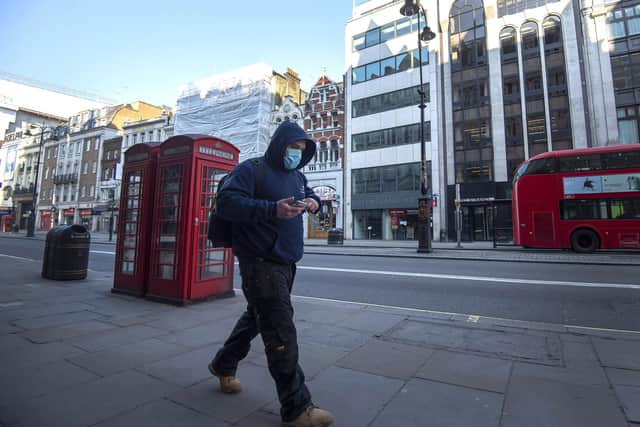Coronavirus: Why are there two types of Covid-19 tests? Here's what they do and what you need to know
and live on Freeview channel 276
Hampshire has been the worst affected area outside of London, with more than 300 confirmed cases across the county as of Wednesday, March 25.
The government is working to increase the coronavirus testing capacity in the UK.
Advertisement
Hide AdAdvertisement
Hide AdThere are two types of tests for Covid-19 - one that tells you if you have the virus at present and another which tells you if you have had a past infection.


Here’s what you need to know:
How do I know if I've got coronavirus now?
If you are a member of the public feeling ill at home, you most likely will not get the antigen test telling you whether you have coronavirus.
There is a small amount of random sampling going on via GP surgeries but most testing is of patients admitted to hospital.
The NHS is prioritising the testing of seriously ill people in hospital to help inform treatment but also to collate numbers of those affected.
Advertisement
Hide AdAdvertisement
Hide AdWhat if I'm a key worker in the NHS, social care or the police?
The Government hopes to start rolling out testing for Covid-19 to NHS frontline workers in the next few days.
A large part of the workforce may be self-isolating at home unnecessarily, either because they have symptoms or somebody in their house does.
Knowing whether these NHS workers truly have coronavirus could help them get back to work quickly - which the NHS desperately needs.
Advertisement
Hide AdAdvertisement
Hide AdThere has been no announcement regarding testing for other key workers.
The NHS is aiming to get to 25,000 of these tests per day, with the ultimate aim being several hundred thousand.
What's this other test that can tell me whether I've had coronavirus?
Advertisement
Hide AdAdvertisement
Hide AdThe development of a separate antibody blood test - which can tell whether people have had Covid-19 at some point in the past - would be a ‘game-changer’, Prime Minister Boris Johnson has said.
Such a test would enable people to get back to work if they have already had coronavirus - important for getting the economy going again.
Those who have had Covid-19 would no longer have to work from home or keep their distance from other people.
It could also reassure healthcare workers about whether they have been exposed to the virus.
How do antibody tests work?
Advertisement
Hide AdAdvertisement
Hide AdThe tests are being developed by several different firms and Public Health England (PHE) is also working on its own test.
They still need to be validated to ensure they give accurate results.
As England's Chief Medical Officer, Professor Chris Whitty, has said: ‘The one thing that is worse than no test is a bad test.’
Antibody tests are a finger-prick blood test, with the samples sent to laboratories and results available within a few days. The body produces antibodies when it fights infection and the test measures the presence of these antibodies in the blood.
Advertisement
Hide AdAdvertisement
Hide AdAnyone who has already had Covid-19 is presumed to be immune to getting it again. There have been reports of people being reinfected, but these are rare.
Will I get a certificate to prove I've had the test and can go back to work?
That is unclear. The Government is still working out whether people will need to prove they are immune.
Will I be able to buy the test on Amazon or at Boots?
Advertisement
Hide AdAdvertisement
Hide AdMillions of the tests could be made available on the high street or via Amazon, Professor Sharon Peacock, from PHE, said on Wednesday.
She told MPs on the Science and Technology Committee that mass testing in the UK would be possible within days and evaluation of the finger-prick blood test should be completed this week.
The UK has bought 3.5 million tests so far and is ordering millions more.
However, Prof Whitty later sought to play down the suggestion that tests would be available within days, saying the public would not be buying the tests on the internet next week.
Boots urged people not to go into its stores looking for the tests.
Comment Guidelines
National World encourages reader discussion on our stories. User feedback, insights and back-and-forth exchanges add a rich layer of context to reporting. Please review our Community Guidelines before commenting.
